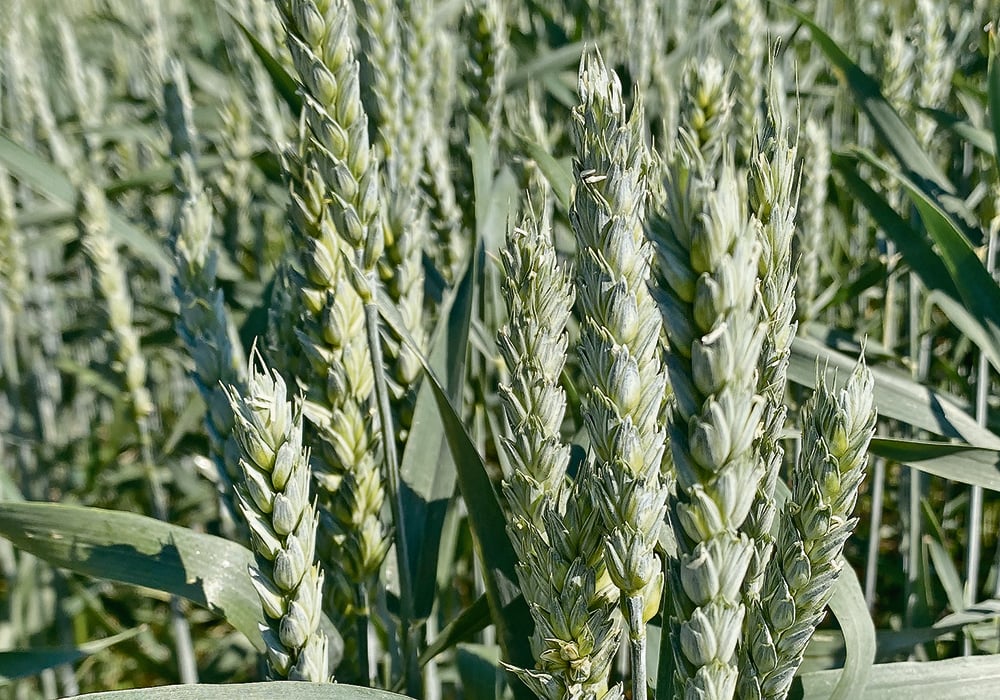Online plebiscites will be held in October on whether Alberta Wheat commission and Alberta Barley should amalgamate
A years-long effort to unite Alberta’s wheat and barley farmers under one commission will be decided by producers taking part in two online plebiscites starting Oct. 3.
The impact of the potential amalgamation on checkoffs levied on such farmers will likely depend on several factors, said Tom Steve, general manager of the Alberta Wheat Commission and Alberta Barley. The creation of a single organization is expected to result in a more efficient operation that could over time “allow us to revisit our levy amounts,” he said.
“But we’re under the pressure of inflation like every other organization, and so the cost of research that we fund, the cost of market development that we fund, and the cost of salaries for our staff are all going up. So, unless we have a really big increase in the acres, we’re not going to have a lot more money to devote to some of these priorities.”
Read Also

Phosphate prices to remain high
Phosphate prices are expected to remain elevated, according to Mosaic’s president.
Separate online plebiscites are to be held for Alberta’s wheat and barley farmers starting at 12 p.m. Oct. 3 and ending at 12 p.m. Nov. 1. If the amalgamation is approved, it will mark a groundbreaking departure from the typical practice in Western Canada of commissions only focusing on one crop, said Steve.
“But from a practical perspective, we’ve been doing it for five years. We just don’t have a single legal entity that’s in place because we’re governed by provincial regulations.”
Steve has been the general manager of both the Alberta Wheat Commission and Alberta Barley since 2017. Although his role at the latter was originally intended to be temporary until someone else could be found to fill the position, it resulted in the creation of a single management team to serve the two separate boards of directors, said Steve.
The decision created savings of up to $40,000 per year as of 2018 that were largely related to salaries, he said.
“And it’s worked well, but more efficiencies we feel could be gained by simply going the next step and operating as one legal entity,” he said.
“Now, again, that decision is going to be up to the membership to decide, but what we’ve experienced over the last five years is we work really well together. I report to two boards, and at times it can get a little bit onerous for us to manage two sets of committees, two sets of financials and so on.”
However, the new single commission will continue to have two separate levy collection systems for wheat and barley, he said, pointing out, “it’s virtually impossible to combine them to have one unified checkoff because the grain companies collect those levies and pay them to us.”
Although there are about 17,000 wheat and 14,000 barley farmers in Alberta, many of them grow both crops, resulting in a “tremendous amount of overlap,” said Steve. Such producers will be entitled to vote in both plebiscites for a total of two votes due to the levies they pay for each crop, he said.
Eligible farmers are those who have remitted checkoffs or received refunds in the last two years, said a statement. They will each receive a letter by mail during the first week of September with information about the plebiscites from the Alberta Agricultural Products Marketing Council and third-party election adviser MNP.
The deadline to register for voting is Sept. 16. People who fail to get the letter can contact the council at 780-427-2164 or via email at af.marketingcouncil@gov.ab.ca.
It will be followed by a second letter during the first week of October that will contain a voting PIN identifier.
An online survey conducted in 2021 found farmers were about two-thirds in favour of amalgamation, said Steve.
Annual general meetings separately held during the past two years by both commissions also passed motions supporting the initiative, he said.
“Now, I think that we don’t want to presume that would be the ultimate outcome … but we have a pretty good sense that farmers are generally comfortable with this and just want us to move on.”
Any reservations have involved the fact that wheat is the number one crop in terms of acres in Alberta, said Steve.
“And so, there’s always that sensitivity around, do we devote as much time and energy to market development and research in barley, which is a somewhat smaller acreage crop than wheat, and I hope we’ve addressed those,” he said.
“Over the last five years, we spent an equal amount of time and effort and market development on malt and feed markets for Alberta barley as we do for wheat, even though we have access to a bigger budget for wheat.”
The Alberta Wheat Commission’s annual research budget is roughly $5 million per year compared to about $600,000 for Alberta Barley, said Steve.
“But one of the principles that the two boards have adopted is that in the new model, we would look at funding research on the basis of merit as opposed to the actual amount of levy dollars collected,” he said.
If farmers give the green light to amalgamation, an interim board of directors will come into effect in 2023 with equal representation from the two commissions, said Steve. It will determine the eventual board structure and name of the new organization, he said.
















